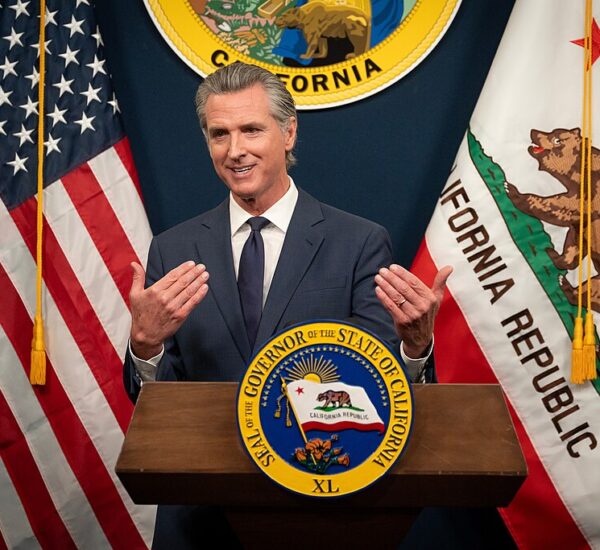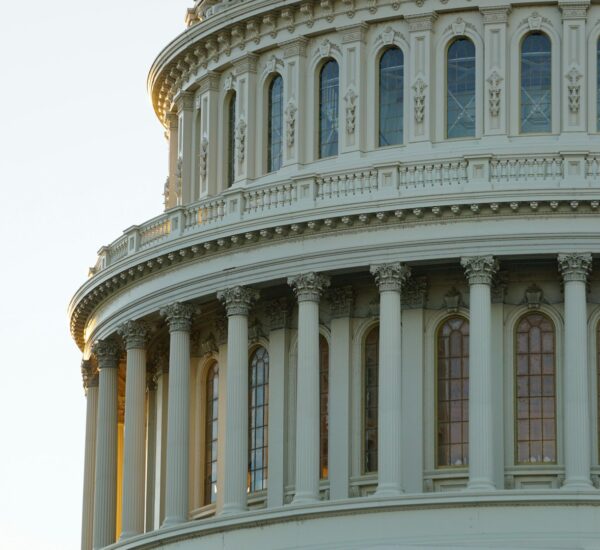President Donald Trump just sent a powerful message to Hollywood and foreign governments: American jobs come first.
On Monday, Trump announced his plan to impose a 100% tariff on all films made outside the United States, a bold move aimed at bringing movie production back home and protecting U.S. workers from decades of outsourcing.
Trump took to Truth Social to slam foreign countries for undercutting the U.S. film industry, saying they’ve “robbed America’s movie-making business like taking candy from a baby.” He blasted California’s leadership under Democrat Gavin Newsom, calling it “weak and incompetent,” and vowed to fix the problem by imposing a 100% tariff on every movie produced outside the United States.
This historic announcement marks the first time in U.S. history that a tariff has been placed on a service industry rather than physical goods — a major step toward reclaiming American cultural and economic power.
Why Trump Is Targeting Hollywood Outsourcing
For years, Hollywood studios have moved production overseas to take advantage of foreign tax breaks and cheaper labor. Countries like Canada, the UK, and Australia have been heavily subsidizing Hollywood blockbusters, leaving thousands of American set workers, crew members, and producers without jobs.
Studios have also partnered with foreign companies in Asia and Europe, gaining access to their financing and distribution networks — often at the expense of U.S. workers and small businesses.
Trump’s tariffs aim to end this globalist outsourcing cycle and bring jobs back to America, creating a fair playing field for workers in the entertainment industry.
Even some Hollywood labor unions agree. Teamsters President Sean M. O’Brien praised Trump’s proposal earlier this year, calling it a critical step to stop job losses and reinvigorate the American film industry.
Wall Street Reacts: Big Studios Panic
The moment Trump made his announcement, shares of Warner Bros Discovery and Netflix dropped sharply in early trading. Neither studio has issued a public statement, a sign that executives are scrambling to figure out how these tariffs could reshape their business models.
Entertainment analysts warn that studios may try to pass these costs onto consumers, raising ticket prices and streaming subscriptions. However, Trump’s supporters argue that the long-term benefits — good-paying American jobs and a stronger economy — far outweigh short-term adjustments.
Trump Expands Tariffs Beyond Hollywood
Trump’s announcement wasn’t limited to the entertainment industry. He also revealed a sweeping plan to revive U.S. manufacturing, especially industries devastated by cheap Chinese imports.
Key Tariff Measures Announced:
- 100% tariffs on branded drugs (with limited exceptions)
- 25% tariffs on heavy trucks
- 50% tariffs on kitchen cabinets and vanities
- 30% tariffs on upholstered furniture
In addition, Trump vowed to bring back the furniture industry — once a thriving part of American manufacturing, particularly in North Carolina, before China flooded the market with cheap products.
“North Carolina used to be the furniture capital of the world,” Trump said.
“But China and other countries destroyed that industry. I will impose substantial tariffs on any nation that refuses to make its furniture in the United States. It’s time to rebuild and put American workers first.”
Why This Matters to Every American
For decades, globalist trade deals have allowed foreign countries to profit while American communities suffered. Factories closed, small towns hollowed out, and working-class families were left behind.
Trump’s new tariffs are part of his broader America First economic agenda, which prioritizes U.S. jobs, U.S. industries, and U.S. families.
This move is especially popular among older Americans who remember when American-made products were the gold standard. By targeting both Hollywood elites and foreign manufacturers, Trump is making it clear: “The days of America being ripped off are over.”
The Road Ahead
While critics are already pushing back, Trump’s supporters see this as a historic turning point. If fully implemented, these tariffs could rebuild entire industries, strengthen national security, and restore America’s cultural influence.
Hollywood executives may fight to protect their foreign partners, but Trump’s plan resonates deeply with millions of Americans who want to see jobs return home.
As the president continues to roll out his economic strategy, one thing is certain: America First is back — and stronger than ever.







https://shorturl.fm/C9pi1